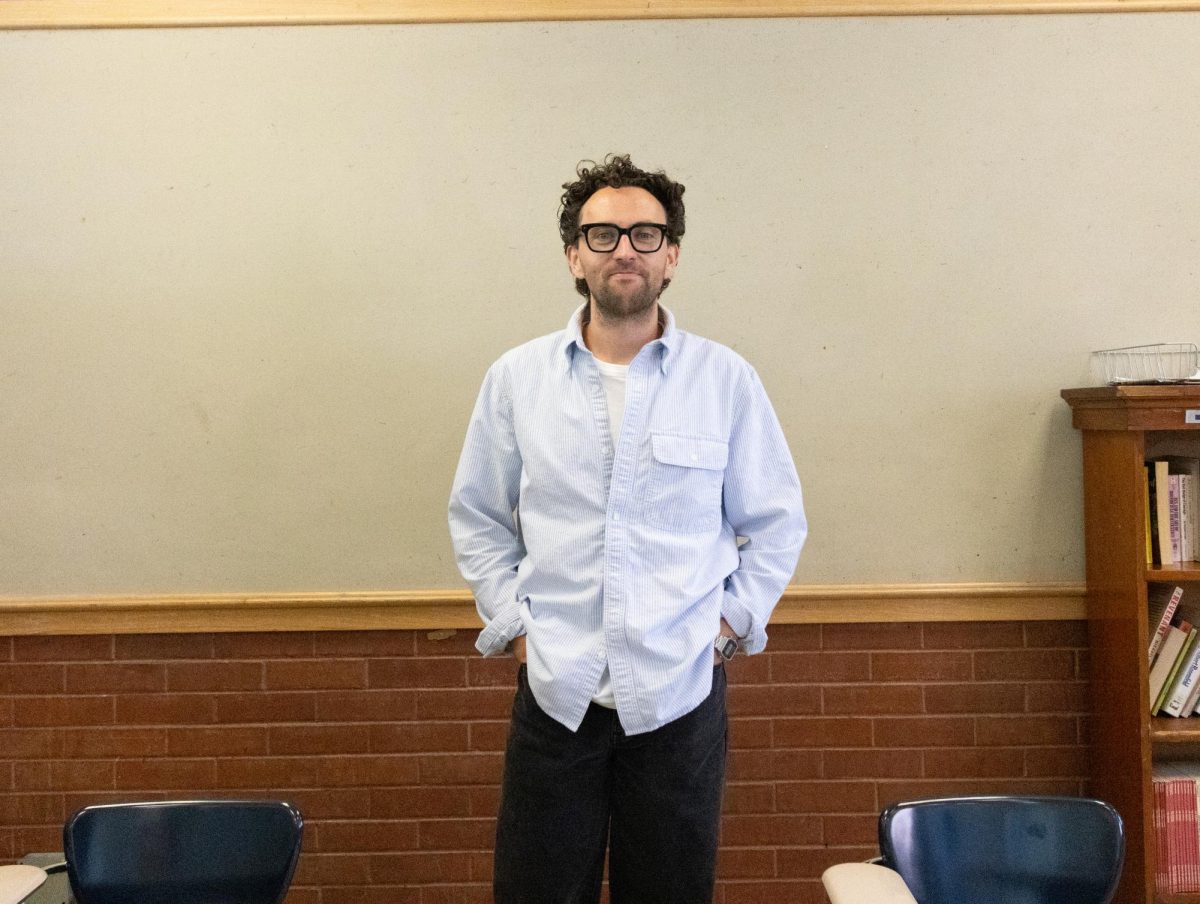School Stress Can Cause Serious Pain And Health Problems
Highland sophomore Marissa Skog feels the negative effects of her homework.
February 15, 2018
Some people feel the effects of stress are physically as well as emotionally and mentally. For sophomore Marissa Skog, stress can trigger her nerves to send pain signals to her brain that cause her physical pain. It can get severe enough that she can’t pick up a pencil or a calculator. This is all really new to her though, as she was just recently diagnosed with this condition which is called Amplified Musculoskeletal Pain.
“I don’t like how much stress kind of gets to me, but I love learning,” Skog said. “But there have been some nights where my nerves are in a loop of pain and that loop of pain gets stuck and it amplifies due to my stress.”
Being the youngest in her family, Skog has her own determination to stand out from her siblings and her way of doing that is through academics and school. For her managing anxiety and stress along with her condition has not been easy. However, she has attributed her family as her main support system through her condition. She did not even know she had this until her diagnosis.
“I’ve had to go to stress therapy and it’s helped,” Skog said. “But it’s new and I’m adjusting.”
Stress is a natural, but much overlooked aspect in the lives of many students. It can help with boosting motivation and effort in work, but it can also put a strain on overall health. It is nothing new that school can cause a lot of stress among students. In some cases it can get so bad, some students need medical attention to help deal with it. However, the amounting expectations and pressures students face are given to them with the hope that they will succeed and thrive in a very competitive world.
“I think that our teachers and parents genuinely want to help us prepare for the world,” Highland student Jackson Johnson said. “I think that there are a lot of expectations on us, but this pressure is helping push us to be better people.”
Finding a balance between getting students to succeed and keeping their health in mind has been a difficult issue to solve. According to the National Institute of Mental Health, about 8 percent of U.S. teens suffer from some sort of diagnosed anxiety disorder. Anxiety has been on the rise among young adults and teenagers since the 1950s. The heightened competition of the college admissions race has been a major factor in the increased pressure that students feel.
“With little to no help at all, students are suffering from school induced stress,” SPA student Jasper Thomas said. “With the small amount of counselors and the high amount of silent people who really don’t speak up about their issues, it really does become a [harmful] situation.”
The chair of the board of The American School Counselor Association, Dr. Sharon Sevier, said in the article “When Anxiety Hits at School,” from The Atlantic, “There seems to be a belief that there are certain courses that are the ‘right’ ones to take. Getting the ‘right’ grade in those classes leads to the potential of getting into the ‘right’ college or university.”
“Many of those ‘right’ schools have stiff admission requirements. Students are challenged to take a demanding course of study, to get a high GPA and gain admission into those schools,” Sevier said. “So many times, if they are denied, students take it as a personal failure. School is more challenging, the stakes seem to be higher, and pressure is alive and well.”’
With the testing culture that has been established, Sevier also said that AP, IB, SAT, and ACT tests among others are adding to the pressure put on students. It can be hard to find a balance between a social life, school, extracurricular, family, and responsibilities.
“It’s so emphasized in our world today to do everything perfect,” Johnson said. “For example, if you don’t do well on things like the ACT, AP tests, or even just grades it can feel like you don’t have a future ahead of you.”
So, with the problem getting so big, what can students do about it? A common theme that researchers and experts alike voiced was to find what triggers stress and make a plan to avoid or deal with those triggers. For example, a procrastinator typically experiences a lot of anxiety and stress — planning ahead of time can help alleviate some of that. Others may need to seek medical care.
Even though not everyone suffers from a stress related condition like Marissa, experts suggest that people find what works best for them as stress affects different people in different ways. If left unmanaged, stress can lead to a lot of health issues.





























